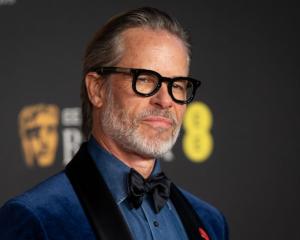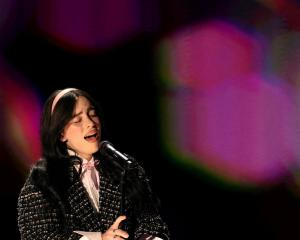
That's why it took a project like the HBO film "Hemingway & Gellhorn" to get the Aussie actress to return to the small screen.
Kidman plays Martha Gellhorn, one of the most significant war correspondents of the 20th century, who also was the third wife of Ernest Hemingway from 1940 to 1945. Their relationship was born in the heat of war and fanned by the passion they had for writing and each other.
We talked to Kidman about the role.
Question: How different is it to play a role based on a real person?
Answer: It's like doing the homework before the exam. You want to have the well of information. And then it's trying to find her essence. Not to be a caricature, but to find what was her essence, what was the beating heart of her, and try to be true to that rather than the physical, rather than the mannerisms.
Q: What's your attraction to roles of women who want more in life?
A: I'm attracted to many different roles. But there's times when I feel the need to play something that inspires me. And I think Martha inspires me. And the same way even playing, say, Virginia Woolf. It was kind of a necessity in the journey of my career to find these women at times and tell their stories. I love these women that defy the odds and that burn bright.
Q: What was Hemingway's affect on Gellhorn?
A: I think Martha found her voice when she was with Hemingway. And he was a big part of helping her to, as he says, a line in the film, which is, "Get in the ring and start throwing some punches for what you believe in." The great thing about Gellhorn was that she was the first female war correspondent and she wrote about people's lives, and she wrote with such direct truth. That's hard to do.
Q: How was she different from Hemingway?
A: She's not Hemingway. She didn't want to write novels. She wants to be a correspondent. You see in the film, her on the frontline. You see her hands bloody. She's a sponge and then she's able to sort of feed that back to America and the world.
Q: What didn't their marriage last longer?
A: They couldn't be together because she wouldn't comply. He thought he wanted a woman who was an adventurer, and then when he finally gets her and she won't settle down, and she won't be domesticated, he doesn't know what to do with that.
Q: How difficult is it to film a love scene with a building falling down around you?
A: It's awesome. Phil was like, "OK. We're going to have - we want stuff coming down." And I think actually what it says - it really emphasizes that they came together through war. They fed off that drama and that energy, in a way. Two people that would make love through a building collapsing, that says something about who they are. And that's why I think that was important, that scene, because you really see that this is where they're their most comfortable, their most passionate, and that's where their love thrives.
Q: How would you feel if someone made a story of your life in 50 years?
A: No. Please, no. I think part of the reason of being an actor is that you like playing other people's lives, and exploring all the psychologies in that, and the emotions. And I think having my life be as private and quiet as possible is a way in which then I can go and play characters. I like the privacy of my life. And I protect it quite vigilantly.











